We've collected everything you need to know about air pollution in one place
Clean air information
Learn more about what air pollution is, how it affects your health what you can do to protect yourself and others.
Clean air planner
Get your personalised clean air action plan to help reduce your exposure to air pollution.
Frequently asked questions
There is no safe level of air pollution. The legal UK annual average limit for compliance of nitrogen dioxide is four times higher than the World Health Organisation guideline.
Defra share recommended health advice for at-risk individuals and the general population depending on the air pollution levels that you can see below.
| Banding | Index | General Population | At-risk Individuals* |
|---|---|---|---|
| Low | 1-3 | Enjoy your usual outdoor activities | Enjoy your usual outdoor activities |
| Moderate | 4-6 | Enjoy your usual outdoor activities | Adults and children with lung problems, and adults with heart problems who experience symptoms should consider reducing strenuous physical activity, particularly outdoors. |
| High | 7-9 | Anyone experiencing discomfort such as sore eyes, cough or sore throat should consider reducing activity, particularly outdoors. | Adults and children with lung problems, and adults with heart problems should reduce strenuous physical exertion, particularly outdoors, and particularly if they experience symptoms. People with asthma may find they need to use their reliever inhaler more often. Older people should also reduce physical exertion. |
| Very High | 10 | Reduce physical exertion, particularly outdoors, especially if you experience symptoms such as cough or sore throat. | Adults and children with lung problems and older people, should avoid strenuous physical activity. People with asthma may find they need to use their reliever more often. |
When you can, avoid walking or wheeling along the busiest roads. Choose ways to get to your destination that use quieter streets, trips through parks and other green spaces or pedestrianised areas.
Air pollution concentrates around the busiest roads, and getting even a short distance away from them can make a big difference. Quieter roads have been shown to reduce your exposure to pollution by 20%.
You can also think about when you travel. If possible, avoid travelling at rush hour when the pollution levels are often much higher.
Defra share recommended health advice for at-risk individuals and the general population depending on the air pollution levels that you can see below.
| Banding | Index | General Population | At-risk Individuals* |
|---|---|---|---|
| Low | 1-3 | Enjoy your usual outdoor activities | Enjoy your usual outdoor activities |
| Moderate | 4-6 | Enjoy your usual outdoor activities | Adults and children with lung problems, and adults with heart problems who experience symptoms should consider reducing strenuous physical activity, particularly outdoors. |
| High | 7-9 | Anyone experiencing discomfort such as sore eyes, cough or sore throat should consider reducing activity, particularly outdoors. | Adults and children with lung problems, and adults with heart problems should reduce strenuous physical exertion, particularly outdoors, and particularly if they experience symptoms. People with asthma may find they need to use their reliever inhaler more often. Older people should also reduce physical exertion. |
| Very High | 10 | Reduce physical exertion, particularly outdoors, especially if you experience symptoms such as cough or sore throat. | Adults and children with lung problems and older people, should avoid strenuous physical activity. People with asthma may find they need to use their reliever more often. |
- Walk, cycle and scoot more, especially using the back streets away from polluting traffic.
- Avoid unnecessary burning at home (e.g. in a stove or open fire) unless it is your only source of heat.
- If you rely on wood for your heating, use 'ready to burn' materials (e.g. dry wood or approved manufactured solid fuels), and try to ensure that your appliance is eco-design accredited.
- If you do have to drive, switch your engine off when you're stationary, and try to choose electric vehicles where you can
Any amount of pollution can be damaging to our health, but the more that you are exposed to, the bigger the risk and the larger the effect it can have on you and your family.
Air pollution affects human health at all stages of life, however, it can be particularly harmful to:
- Children
- Pregnant people
- Older people
- People with lung conditions
- People with heart conditions
- Socio-economically disadvantages and racialised communities
Air pollution levels change with location, different weather conditions. and with activities that are taking place.
Air pollution gathers around the areas where it is formed. So places that have lots of traffic, domestic wood fires, industry or farming can have higher levels of pollution.
Pollution can change at different times of year too. Ozone pollution forms in direct sunlight, so more is generated on particularly sunny days and levels are likely to be higher in spring and summer. In winter, when there is particularly cold air at ground level and warmer air above it, air pollution can become trapped until the weather changes again.
Some seasonal events, like bonfires and fireworks, can also result in higher levels of air pollution during the displays and for a time after.
In July 2025, the government released their 10 Year Health Plan which includes ‘Cleaning up our air’ as part of their strategy to move from sickness to prevention. The policy paper lays out commitments to further action via improving active travel and public transport provisions, raising awareness via healthcare professionals, and improving indoor pollution including consulting on wood burning stoves.
The UK government launched its Clean Air Strategy in 2019 which sets out their plans for dealing with sources of air pollution. This includes things like developing new guidance on things that create pollution like tyres, brakes and wood stoves. They are also working to make sure that only the cleanest fuels are available for sale.
Local authorities have a number of responsibilities for local air quality. Every authority is required to regularly review and assess air quality in their area. They are also required to produce annual reviews of air quality, and action plans to improve or safeguard air quality within those areas. You can find the latest air quality reviews and plans on local authority webpages.
Climate change and air pollution are both issues associated with the burning of fossil fuels i.e. many sources of air pollution are the same sources that contribute to climate change/ This means that reducing sources such as carbon and greenhouse gas emissions, will not only help to improve air quality but may also help to tackle climate change.
Air pollution is also bad for nature as well as people, and is impacting on and contributing to the loss of wildlife. Scientific evidence clearly shows the negative effects of air pollution on wild plants, trees, fungi, mosses and lichens, with knock-on effects for wildlife and whole ecosystems in England, Scotland, Wales and Northern Ireland.




